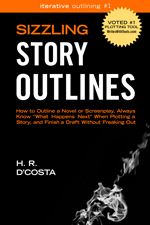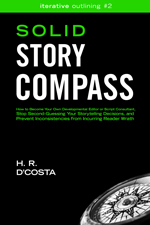Today is the second part of a post where I examine the approach screenwriters should have when choosing careers and jobs for their screenplay characters. The first part examined if your hero really needs a job–fictional characters are lucky enough that their bills still get magically paid even if they don’t put in their 40 hours. Even if his professional life doesn’t play a huge role in your plot, your hero’s job can achieve other screenplay goals like: raising the stakes, creating irony and showing personal growth.
Sadly, most aspiring writers get lazy about which job to choose for their characters, and opt for one of the following: lawyer, aspiring actor (or model), ad executive…and god forbid, blogger! Choosing a more unique profession for your characters is an easy way to make your screenplay stand out from its competition. But where to find these unique professions? And what to do if you’re main character cannot logically be anything but a lawyer…actor…or model?
So my hero is a lawyer…now what?
In some screenplays, your character HAS TO BE a certain profession; otherwise, the story wouldn’t make any sense. If you’re writing a Grisham style courtroom drama, then yes, some of your main characters will be lawyers. There’s no getting around that. You can’t choose another, more unique, profession for your characters…but you can make them more than ho-hum worker bees.
One of the best examples of this is Ted Danson’s character in Body Heat. He plays a prosecutor in the thriller penned by Lawrence Kasdan. Ted Danson would quite literally prance into and out of each of his scenes, because his character would practice his smooth ballroom moves every chance he got.
The dog-headed prosecutor character has been on the screenwriting scene for quite a while. We’ve seen prosecutors desperate to prove themselves in hundreds of movies and thousands of television criminal procedurals…but have you ever seen a prosecutor who was obsessed with ballroom dancing? While his profession was cookie-cutter, that quirk made Ted Danson’s prosecutor unique and memorable.
If your protagonist’s career is a profession we’ve seen in a lot of screenplays, find a way to put a fresh twist on it. The lawyer in your screenplay doesn’t have to be a suit with a briefcase. He can be a home-made beer enthusiast…whose handiwork gets mixed reviews at the firm’s Christmas party. Passions and obsessions are a great way to make your characters distinctive. For 25 more ideas, read How to Create Original Characters in your Supporting Cast.
In some circumstances, it’s not essential for your screenplay’s main characters to have a specific profession but you give them been-there, done-that jobs because your script needs to naturally incorporate a specific workplace setting. Maybe courtroom evidence is the key to understanding your drama, so you cast your main character as a lawyer. Maybe you’ve come up with really awesome set pieces and comedy gags which could only occur on a studio lot, so your hero’s love interest is an actress.
Don’t be so lazy. Make your screenplay stand out by rejecting the first profession which comes to your mind, the one which everyone associates with a specific setting. Instead, look around and discover the “periphery players,” those people who might not be the most recognizable stars in their field, but who nevertheless play an essential professional role. More importantly, they still give you “access” to the settings you need in order to write a scene the way you’ve been envisioning.
Let’s take that courtroom drama as an example. Why can’t your courtroom evidence come from a bailiff? A stenographer? Or from the clerk who’s responsible for scheduling all the cases in a judge’s docket? Why can’t your hero be one of those guys?
Alternately, if you came up with a great comedy gag which could only occur on a studio set, that doesn’t mean your main character has to be an actor…or a director…or a producer. Why can’t she be a costume designer? Or a cinematographer? These professions still enable you to seamlessly incorporate your great sound stage comedy set piece. Plus, you’ve distinguished your screenplay from dozens of other specs flooding the market just by virtue of choosing a less common career for your heroine.
For example, in Mindy Kaling’s screenplay The Low Self-Esteem of Lizzie Gillespie, Lizzie’s dream is to be a dramaturge. Drama-say-what? I haven’t hung out in theater circles, so I had no idea what a dramaturge does, but from her script, I learned that it was the person who gives “historical context” to a play. So I still don’t know what a dramaturge does, but I know that when I read about it in Kaling’s script, I thought, “thank god Lizzie doesn’t secretly want to be a director. I’ve read enough of those!”
Let’s say your plot doesn’t dictate the profession of your hero…and you haven’t come up with any scenes which require a specific workplace setting. Maybe you’re writing a script which explores the relationships between the main characters like the movie Crazy, Stupid Love and their jobs aren’t very important to telling your story. Still, you want to explain how your leading lady can afford her badass MacBook Air, so she needs some kind of work. You look at the jobs your friends have–and everyone is either a lawyer or a teacher. After reading this post, you want something more unique. Where do you look?
High School & College Reunions
The reunion does not just exist to show off that you lost 20 pounds or that your wife is smoking hot. It’s a screenwriting resource as you try to discover cool professions for your characters. As you socialize with past friends (and enemies), you can learn about what career avenues they’re on now…as well as the professional detours they took (which can be equally, if not more, helpful to your creative muse).
The best part is that it won’t seem like you’re grilling them for information because everyone expects the “what are you doing now?” questions at a reunion. Finding out why Colleen Flanagan divorced Dean Panagakos…that will require subtle interrogation skills on par Veronica Mars. Now if you’d rather not be bothered with the jerks who went to your high school or college, you can just read your monthly alumni newsletter. Class notes and alumni profiles can provide you with enough details to help you choose careers for all the major players in your screenplay.
A quick dip into my alumni magazine yielded the following unique jobs: a dog behaviorist who studies the communication between canines and humans, a photographer who specializes in headshots for aspiring actors, and a manufacturer of “indestructible” iPad covers.
If reading about the lives of your former classmates causes you to sob with envy, then try visiting…
Snob Central
The bastions of the so-called elite can be great grounds to comb if you’re looking for unique professions you’ve never heard of. Magazines like Bon Appetit and radio stations like NPR can showcase a vast array of careers which you probably never new existed. From Food and Wine, I learned about two Danish designers who make restaurant furniture–a career I have never seen in a movie or read in a script. From a quick visit to NPR’s website, I stumbled across an article about David Heisler, who grows pumpkins on his farm in Maryland.
A pumpkin patch would make an excellent backdrop to both dramatic and comedic scenes. If I spent more time at these sites, I could probably find articles on other individuals who have interesting jobs in the food & beverage industry…jobs which would definitely give fodder for my screenwriting muse. Just think about all the artisans involved in producing a gourmet meal–the farmer who grows organic lacinato kale, the workers who hand-harvest fleur de sel off the coast of Brittany, the wood carver who makes utensils out of sustainable bamboo…
But if you can’t bother with meals which require hand-harvested salt, and if you think NPR can be a tad pretentious, then you can always…
Get Crafty
If your plot requires your protagonists to have a work-from-home job, it’s mighty tempting to make them a writer or a blogger. While you might be frustratingly familiar with these professions, they certainly aren’t the most cinematically appealing of careers. Plus, they’ve been done to death. In his review of Sex Tape, Carson Reeves over at Scriptshadow commented that in a lot of screenplays he’s read, key characters are professional bloggers:
I would warn against this, partly because every writer’s been doing it, but also because it’s a job clearly chosen out of laziness. Who needs to research a blogger? Anyone can blog! Which means you don’t have to think up the job or what they’re doing at the job or any of those difficult details that flesh out a character’s life. You just have ’em hang out all day on the computer! Perfect for someone who doesn’t like effort.
I couldn’t agree more. If it’s essential for your main characters to work from home, there are other ways for them to earn money besides from launching “just another WordPress blog.” Think crafty…as in handicrafts. There are thousands of artists and handicrafters selling their wares on etsy.com. Browsing their online storefronts should give you plenty of inspiration about the different ways people have made money from home by nurturing their hobbies.
After a quick surfing of Etsy shops, I discovered many different artisans who could provide an interesting trade for work-from-home characters in a script. Like Laura, who’s based in Raleigh, North Carolina. She makes adorable animal totems like this one:

Etsy is full of jobs for screenplay characters
You can find more of her work at her etsy store leanimale. I’m also impressed by Ken Shay. Based in Michigan, he makes most incredible glass vases–and at very reasonable prices too! Check them out here.
When you’re writing your screenplay scenes, remember that the final product is very much a visual medium. That’s another reason why it’s not a great idea to make your protagonist a pro-blogger. It’s not cinematic at all. It’s a guy typing at his laptop, with maybe a few INSERTS showing his blog posts. Making works of art, on the other hand, is incredibly visual and looks very compelling on screen. Look at Robert Wiley, owner of the etsy storefront Rustic Creation in Wood, weaving at his loom.
Wouldn’t the loom look amazing on-screen? Now imagine a scene where a husband argues with his wife as her fingers fly over the strings of the loom. That’s something I’ve never seen in a screenplay before, have you? Out in San Francisco, Jeremiah Nielson handcrafts furniture out of walnut and oak. Each piece is “one of a kind because we choose to celebrate natures imperfection instead of filling and cutting around them.”
I can easily imagine a screenplay scene in which a skilled artisan like Jeremiah sands a walnut coffee table he made himself as he’s talking to his mom. Look at the beautiful mosaics Christine makes through Memories in Mosaics. Doesn’t her work inspire your screenwriting muse? I can already see the leading lady in a romantic comedy breaking tiles for her mosaic after breaking up with her boyfriend (oooh the symbolism!)…and then selling the mosaic she makes to the story’s hero.
The possibilities are really endless!
Final thoughts
Sometimes it’s essential for your protagonists to have a career, sometimes it isn’t. Regardless, use these screenwriting tips to make your main character’s job feel fresh, instantly elevating your screenplay above the others in the pack. Giving your characters a cool way to earn a paycheck might just help you earn yours.
Help Wanted by photologue_np




















